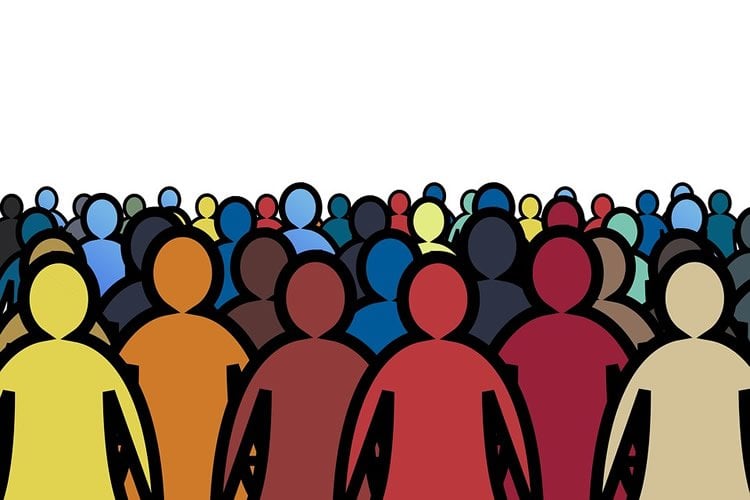Summary: Researchers report people experience a stronger pain relief if they are treated by someone outside of their social group.
Source: University of Wuerzburg.
Is pain treatment more helpful if it is provided by a person from our own social group, or is the help of a stranger more efficient? A study conducted by researchers from the Universities of Wuerzburg, Amsterdam and Zurich investigated this question and found that people experience a stronger pain relief if they are treated by a person that belongs to a different social group.
The study has been published in the latest issue of the Royal Society of London B: Biological Sciences. It was led by Grit Hein, a psychologist, neuroscientist and professor of Translational Social Neuroscience at the Center of Mental Health of the Würzburg University Hospital who teamed up with Jan B. Engelmann (Amsterdam) and Philippe N. Tobler (Zurich).
“Participants received pain on the back of their hand. In one group of participants, this pain was relieved by a person from their own social group, another group of participants received pain relief from a person from a different group. We measured how the pain relief treatment changed neural pain responses and subjective pain judgments.” Grit Hein describes the scientists’ approach.
Treatment by a stranger was more efficient
The result: “Before the treatment, both groups showed similarly strong responses to pain,” Grit Hein explains. “In contrast, after being treated by what they considered a “stranger”, the participants from this group rated their pain less intense than the other group. The effect was not limited to the subjective pain experience: “We also saw a reduction of the pain-related activation in the corresponding brain regions,” the scientist says.

While being surprising to the lay person, the finding is in line with a core principle of learning theory according to which people learn particularly well when the results differ significantly from what they had expected. This is called “prediction error learning” in psychological language where the surprise contributes to “rooting” the new experience more effectively in the brain.
Analgesic effect of surprise
Related to the pain experiment, this means the following: “The participants who received pain relief from an outgroup member had not expected to actually get effective help from this person,” the neuroscientist explains. And the less the participants had anticipated positive experiences, the bigger their surprise when the pain actually subsided and the more pronounced the reduction of their pain responses. “Of course this finding still needs to be verified outside the laboratory”, says Grit Hein, ” but it could be relevant for the clinical context where treatment by nurses and doctors from different cultures is common today.”
Funding: Swiss National Science Foundation, German Research Foundation funded this study.
Source: Grit Hein – University of Wuerzburg
Publisher: Organized by NeuroscienceNews.com.
Image Source: NeuroscienceNews.com image is in the public domain.
Original Research: Abstract for “Pain relief provided by an outgroup member enhances analgesia” by Grit Hein, Jan B. Engelmann, and Philippe N. Tobler in Proceedings of the Royal Society B: Biological Sciences. Published September 26 2018.
doi:10.1098/rspb.2018.0501
[cbtabs][cbtab title=”MLA”]University of Wuerzburg”The Soothing Effects of Strangers.” NeuroscienceNews. NeuroscienceNews, 26 September 2018.
<https://neurosciencenews.com/soothing-strangers-9921/>.[/cbtab][cbtab title=”APA”]University of Wuerzburg(2018, September 26). The Soothing Effects of Strangers. NeuroscienceNews. Retrieved September 26, 2018 from https://neurosciencenews.com/soothing-strangers-9921/[/cbtab][cbtab title=”Chicago”]University of Wuerzburg”The Soothing Effects of Strangers.” https://neurosciencenews.com/soothing-strangers-9921/ (accessed September 26, 2018).[/cbtab][/cbtabs]
Abstract
Pain relief provided by an outgroup member enhances analgesia
Pain feels different in different social contexts, yet the mechanisms behind social pain modulation remain poorly understood. To elucidate the impact of social context on pain processing, we investigated how group membership, one of the most important social context factors, shapes pain relief behaviourally and neurally in humans undergoing functional neuroimaging. Participants repeatedly received pain relief from a member of their own group (ingroup treatment) or a member of a disliked outgroup (outgroup treatment). We observed a decrease in pain ratings and anterior insula (AI) pain responses after outgroup treatment, but not after ingroup treatment. Moreover, path analyses revealed that the outgroup treatment induced a stronger relief learning in the AI, which in turn altered pain processing, in particular if the participant entered the treatment with a negative impression toward the outgroup individual. The finding of enhanced analgesia after outgroup treatment is relevant for intergroup clinical settings. More generally, we found that group membership affects pain responses through neural learning and we thus elucidate one possible mechanism through which social context impacts pain processing.






